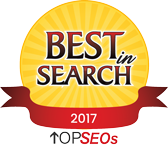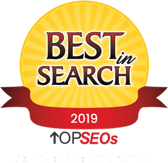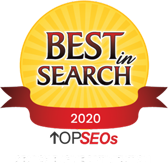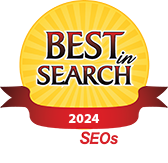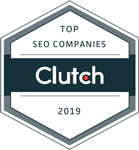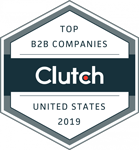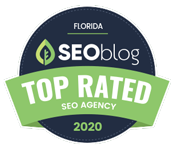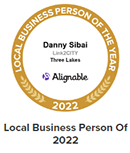What is PPC?
PPC or Pay Per Click marketing is a model of advertising that allows marketers to pay only when their ad is clicked by an online user. Search engines like Google and Bing make pay per click advertising available on an auction basis where the highest bidder typically earns the most prominent placement, with some caveats.
To show an ad in PPC or Paid Search results, marketers create ads and then bid on specific search phrases for which to show them. These pay per click ads will then appear above and below the non-paid organic search results, and you’ll pay the search engine a small fee every time a user clicks on your ad, regardless of the total number of times the ad was shown.

You Are Here
Again, all of these ad spots are sold in an auction. To show your own ad here, you would bid the maximum amount you’re willing to pay for a click on your ad. Bid the most in that auction and you have a chance of ranking number 1 in these sponsored or paid results. Note that we said a chance. There’s also something called quality score that can impact your ranking. More on that in a minute.
If someone clicks on your PPC listing, they arrive at your website on a page you’ve selected, and you are charged an amount no more than what you bid. So, if you bid $1.50 maximum on the keyword ‘widgets’, and that’s the highest bid, you’ll probably show up first in line. If 100 people click on your PPC listing, then the search engine or PPC service will charge you a maximum of $150.00.
Why PPC is Important to Digital Marketing
Pay per click advertising can generate traffic right away. It’s simple: Spend enough, get top placement, and potential customers will see your business first. If folks are searching for the key phrases on which you bid and you’ve placed a well-written ad, you will get clicks the moment the ad is activated.
PPC advertising is fast
With some systems, such as Google AdWords, you can generate targeted traffic within a few minutes of opening an account.
PPC advertising is also nimble
Where organic search engine marketing or other forms of advertising can lag weeks or months behind changing audience behavior, you can adjust most pay per click campaigns in hours or days. That provides unmatched ability to adjust to market conditions and changing customer interests.
PPC advertising can also be a bargain
Sometimes, you can find keyword ‘niches’ for which the top bid is a fantastic deal. These are longer, highly specific phrases, that not everyone will have taken the time to pursue; “long-tail search terms”. In this case, PPC is a great option because you can generate highly targeted traffic to your site for a fraction of the cost of any other form of paid advertising.
So, balancing the good and the bad, where does PPC fit in? As a focused advertising tool.
Why PPC Advertising can be Challenging
But PPC advertising can run up costs extremely quickly. It’s easy to get caught up in a bidding war over a particular keyword and end up spending far more than your potential return. ‘Ego-based’ bidding, where a CEO/marketer/someone else decides they Must Be Number One no matter what can cost thousands upon thousands of dollars. Also, bid inflation consistently raises the per-click cost for highly-searched phrases.
This inflation is caused by ego-based bidding and by the search engines themselves, who impose quality restrictions on many keywords. These quality restrictions increase the cost per click even if no one else is bidding.
Junk traffic can also suck the life out of your campaign. Most, but not all pay per click services or providers distribute a segment of their budget to several search engines and other sites via their search partners and content networks. While you certainly want your ads displayed on Google and/or Bing, you may not want your ads showing up and generating clicks from some of the deeper, darker corners of the Internet. The resulting traffic may look fine in high-level statistics reports, but you have to separate out partner network campaigns and carefully manage them if you’re going to get your money’s worth.
Finally, pay per click advertising does not scale. If you get more traffic, you pay more money in nearly direct proportion to that traffic – your cost per click stays constant, and your overall cost increases.
Compare that to search engine optimization, where you invest a fixed amount of effort and/or money to achieve a better rank, and your effective cost per click goes down as you draw more traffic.
Source:https://www.portent.com/services/ppc/pay-per-click-explained




